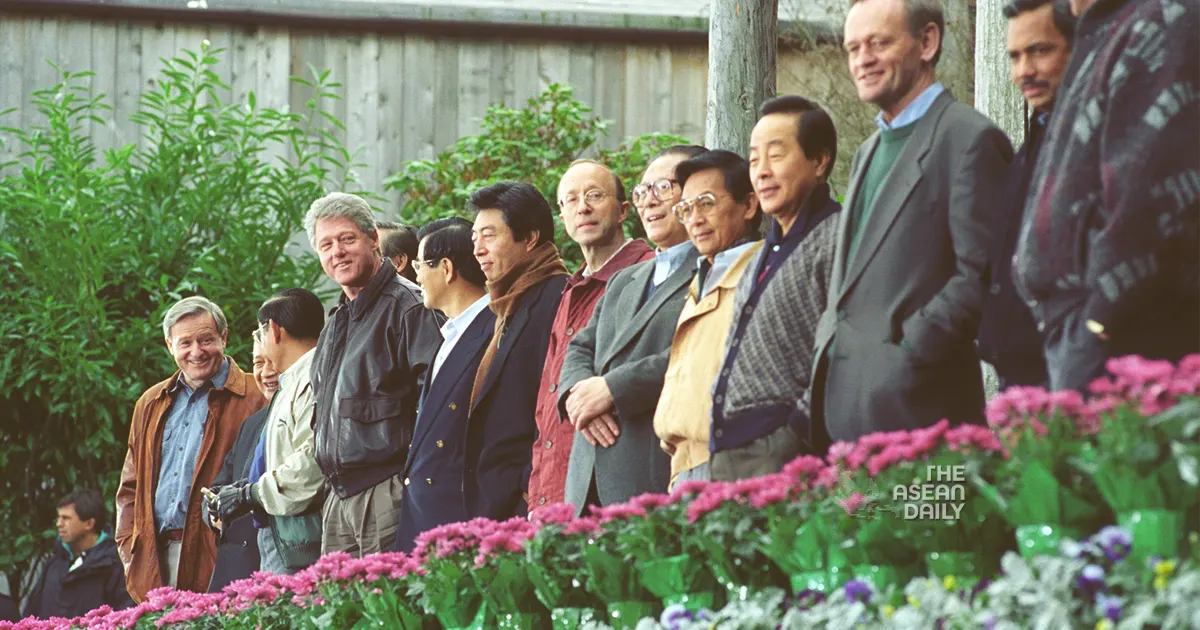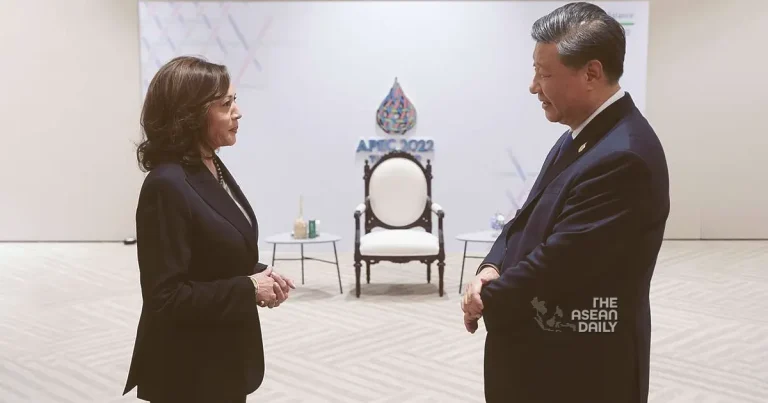2-11-2023 (WASHINGTON) Leaders representing the 21-member Asia-Pacific Economic Cooperation (APEC) forum are set to convene in San Francisco for the 30th APEC summit this month, marking the first time the United States has hosted the event since 2011.
Anticipated as the highlight of this year’s summit is the strategic competition between the two largest economies globally, the United States and China. All eyes are on the expected bilateral summit on the sidelines, which could bring together U.S. President Joe Biden and Chinese President Xi Jinping.
Although Xi has not yet confirmed his attendance at APEC, such a meeting would be the second in-person encounter between the two leaders since Biden’s inauguration in January 2021. Their first face-to-face meeting occurred at the G20 summit in Bali a year ago.
The APEC leaders’ gathering is scheduled to take place between November 15-17. Before the summit, senior APEC finance officials and ministers will meet from November 11, and the annual APEC CEO summit is set for November 14-16.
What is APEC?
APEC was established in Canberra in 1989 as an informal dialogue forum designed to promote regional economic integration. Originally consisting of 12 members, it has now expanded to include over 100 meetings annually.
APEC’s membership encompasses 38% of the global population, nearly 3 billion people, representing about 62% of the world’s GDP and accounting for almost half of global trade. APEC operates on the principles of non-binding commitments, open dialogue, and equal respect for all participants’ views. Decisions are reached by consensus, and commitments are voluntary.
APEC’s Membership
APEC’s members include Australia, Brunei, Canada, Chile, China, Hong Kong, Indonesia, Japan, South Korea, Malaysia, Mexico, New Zealand, Papua New Guinea, Peru, the Philippines, Russia, Singapore, Taiwan, Thailand, the United States, and Vietnam. Notably, APEC groups member economies rather than nations, allowing for the participation of Chinese-ruled Hong Kong and self-ruled Taiwan, which China claims as its own. However, it does not include India, the world’s most populous country.
India’s efforts to join APEC faced obstacles for years due to the country’s limited integration into the global system and membership freezes.
Taiwan’s presidents do not attend APEC summits, but the island is represented by senior former officials or business leaders, such as Morris Chang, the founder of semiconductor maker TSMC, who attended the Bangkok summit last year.
Current Controversies
The representation of Hong Kong has sparked controversy. As the host, the United States has control over the guest list. In July, U.S. congressional aides informed Reuters that John Lee, Hong Kong’s chief executive, would not be invited due to U.S. human rights sanctions. The Hong Kong government cited “scheduling issues,” and Financial Secretary Paul Chan is expected to attend the summit in San Francisco.
Russia’s participation became divisive after its invasion of Ukraine last year. Russian President Vladimir Putin did not attend the 2022 summit in Bangkok. The U.S. State Department has confirmed that Putin will not be present in San Francisco.
Drafting a final summit declaration this year is expected to be challenging due to divisions among members regarding conflicts in Ukraine and the Middle East. In Bangkok last year, leaders endorsed a text pledging to uphold and strengthen a rules-based multilateral trading system while noting that “most” of them condemned Russia’s war in Ukraine.
Matt Goodman, a trade expert and former White House coordinator for the 2011 APEC summit, suggested that smaller groups of like-minded states could issue their own statements. He noted that given APEC’s membership, which includes both Russia and China, it has become increasingly difficult to achieve tangible outcomes.
Buzzwords
The United States has chosen the theme “Creating a Resilient and Sustainable Future for All” for APEC 2023. The U.S. aims to foster an interconnected, innovative, and inclusive region and advance a free, fair, and open economic policy agenda that benefits U.S. workers, businesses, and families. As of 2021, APEC members accounted for seven of the United States’ top 10 overall trading partners.
Goodman anticipates that the U.S. will highlight the relative strength of its economy during challenging times, implicitly comparing it to the difficulties China has faced after years of rapid growth. He also expects the U.S. to emphasize progress in the 14-nation Indo-Pacific Economic Framework (IPEF), created to enhance engagement after former President Donald Trump withdrew from a regional trade pact in 2017.
Fashion Show

Traditionally, APEC leaders wear local attire for a final-day group photo. This tradition began in 1993 when President Bill Clinton prescribed bomber jackets in Seattle. However, President Barack Obama broke with tradition in 2011 by not wearing Hawaiian shirts, the customary holiday attire in the islands. Whether and how San Francisco embraces this tradition remains to be seen.




